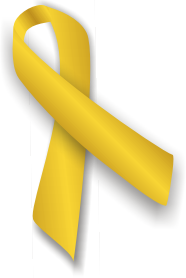No More Cancer Jokes
“Even though laughter truly is the best medicine, cancer is not funny. Good times, good humor, and laughter don’t usually come to mind when you’re dealing with cancer,” Jacobi Medical Center general physician Dr. Evia Nano said.
Over eight million people worldwide are expected to die of cancer this year. To put that into perspective, New York City has a total population of 8.406 million people. On January 1, 2014, about 14.5 million living Americans had some history of cancer. Worldwide, an estimated 169.3 million years of healthy life were lost due to cancer in 2008.
Considering these statistics, it breaks my heart to hear anyone, let alone students here at Southern Lehigh, make insensitive jokes about an illness with such devastating effects. Speaking as someone who lost her father to cancer last year, not only do I find these jokes inconsiderate, but I find them callous and extremely uncalled for.
“Finding out someone you love has cancer is one of the most tragic things you could ever hear,” sophomore Maddie Arnold said. “I would tell [a person who makes cancer jokes] that someone’s life isn’t a joke.”
Ranking as the second most common cause of death in the United States, only behind heart disease, cancer can be found practically anywhere you turn, and affects the lives of countless people both internationally and locally. Worldwide, around 1.6 million new cancer cases are expected to be diagnosed this year; in the United States, 1630 people are diagnosed with cancer every day.
“I think that sometimes people are not familiar with how awful [cancer] is for patients or their families,” social studies teacher Mr. Lee Zeisloft said. “It’s a terribly immature way to deal with such a serious problem.”
Furthermore, it is common knowledge that chemotherapy is often administered to cancer patients as a form of treatment. Chemotherapy aims to restrain the cancer from spreading, and to kill cancer cells that have already spread throughout the body. Administered through a pill, liquid, shot, catheter, or simply by injecting the chemo directly into the spine, chest, or belly, or by rubbing it onto the skin, chemo inflicts both common side effects, such as fatigue, diarrhea, nausea and vomiting, appetite loss, and hair loss, and more serious side effects, such as permanent organ damage, delirium, nerve damage, and infertility, since it cannot attack cancer cells without killing healthy cells as well.
Based on my firsthand experiences, most cancer jokes seem to center around the “signature symptom” of chemotherapy: alopecia, or hair loss. Considering how already emotionally and physically damaging this toxic treatment is, I find it even more distasteful that people choose to mock chemo patients in particular.
“Even though studies show that laughter can actually improve immune function, which is so important for cancer patients battling the disease and trying anything to heal their bodies during cancer treatment, the stress created by an offensive joke is definitely detrimental to physical and mental health in this particular situation,” Dr. Nano said.
While Americans generally have a 1 in 5 chance of developing depression in their lifetimes, depression is twice as common in patients suffering from severe medical or neurological diseases, including cancer. Studies by the National Institutes of Health (NIH) show that between 20 and 40 percent of cancer patients will become depressed sometime throughout the course of their illness. Researchers at Memorial Sloan Kettering Cancer Center found that 25 percent of cancer patients may experience depression that prompts evaluation or treatment. In general, both cancer patients and their loved ones are likely to deal with some type of distress, anxiety, fear, or depression as a result of the ruthless disease.
“I feel that people who make jokes about cancer or cancer patients aren’t actually bad people,” Arnold said. “Most likely these people are just completely oblivious to the actual effects of and emotions involved with cancer.”
I could probably sit here and write an entire novel naming every single reason why cancer jokes are cruel. Quite frankly, I’m disappointed that I have to write this article at all. Families and individuals coping with the heartache and anguish caused by what author Stephen King once called the “pitbull of diseases” deserve nothing less than the utmost love, respect, care, and support. It should be clear as day to everyone that a heart-rending illness like cancer is no laughing matter, so please, have some empathy, and don’t treat it as such.

Senior Sarah Trebicka is a four-year staff reporter and former two-year Our World editor, now serving as editor-in-chief for the Spotlight. In addition...


